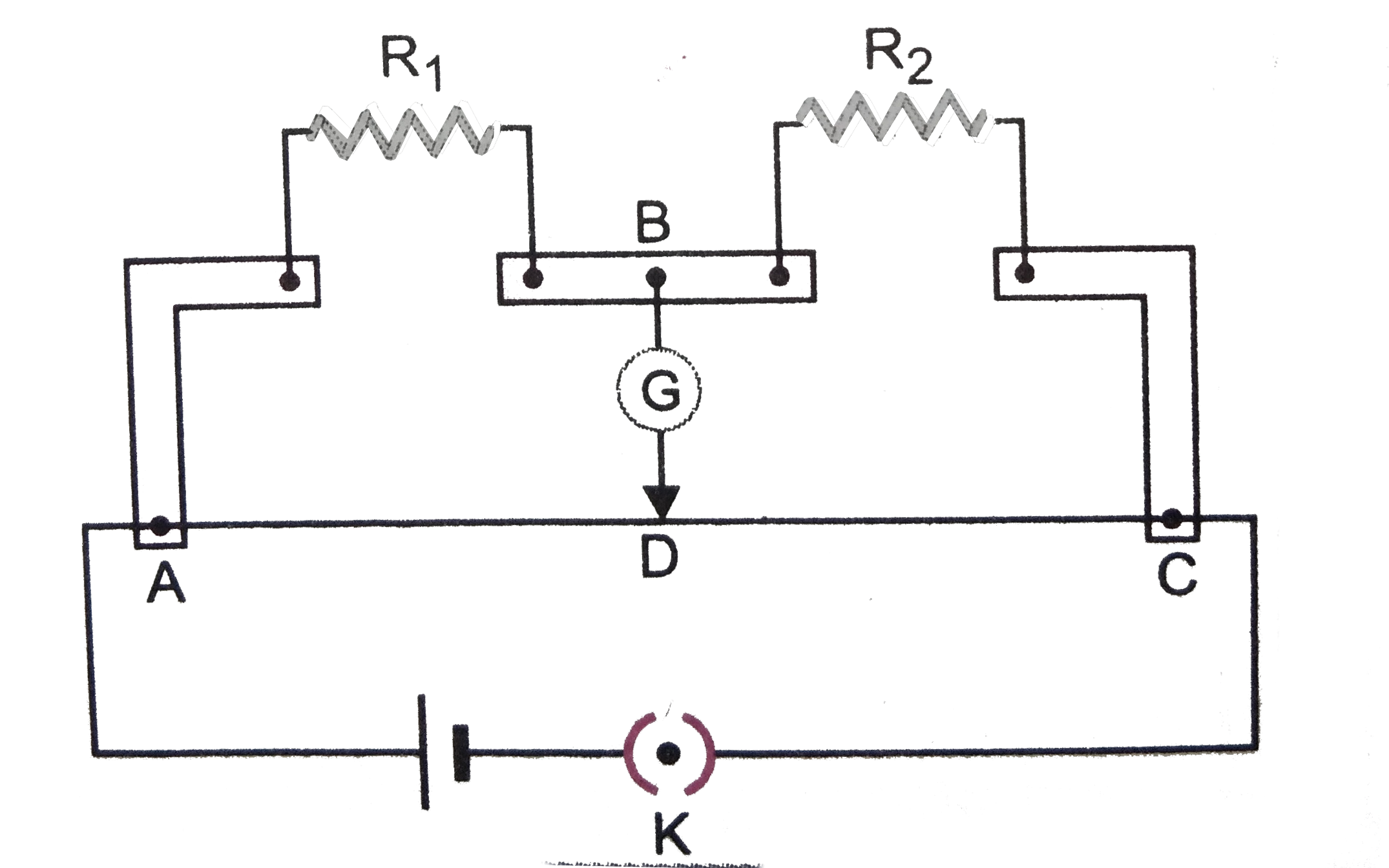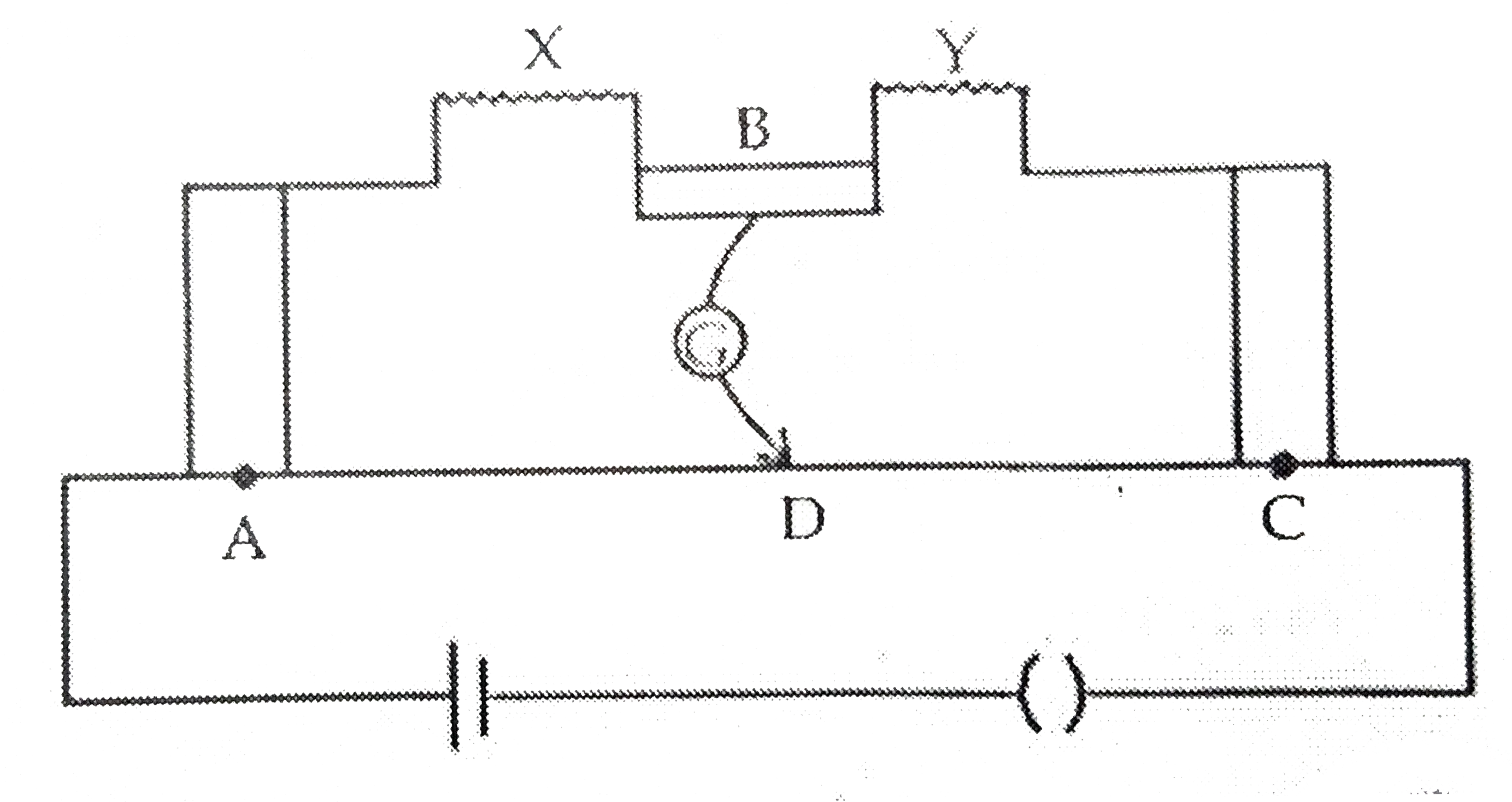In a meter bridge experiment, the null point is obtained at 20cmfrom one end of the wire when resistance X is balanced against another resistance Y. If X<Y, then where will be the new position of the null point from the same end, if one decides to balanced a resistance of 4X against Y?
50 cm
80 cm
40 cm
70 cm
The correct Answer is:A
Step by step video, text & image solution for In a meter bridge experiment, the null point is obtained at 20 cmfrom one end of the wire when resistance X is balanced against another resistance Y. If X lt Y, then where will be the new position of the null point from the same end, if one decides to balanced a resistance of 4X against Y? by Physics experts to help you in doubts & scoring excellent marks in Class 12 exams.
Updated on:21/07/2023Topper's Solved these Questions
- SEMICONDUCTORSBOOK - BANSALCHAPTER - SEMICONDUCTORSEXERCISE - Exercise-2
24 Videos
- SEMICONDUCTORSBOOK - BANSALCHAPTER - SEMICONDUCTORSEXERCISE - Exercise-3
24 Videos
- MASTER PRACTICE PROBLEMBOOK - BANSALCHAPTER - MASTER PRACTICE PROBLEMEXERCISE - Additional topic
70 Videos
- TEST PAPERSBOOK - BANSALCHAPTER - TEST PAPERSEXERCISE - PHYSICS PART C
14 Videos
Similar Questions
In a meter bridge experiment shown below, the null point is obtained at P. The value of unknown resistance X is 2012 50 cm 1.) E
View SolutionIn the meterbridge experimental set up, shown the null point D is obtained at a distance of 40cm from end A of the meter bridge wire if a resistance of 10Ω is connected in series with R1, null point is obtained at AD=30cm

View Solution
Knowledge Check
In a meter bridge experiment, the null point is obtained at 20cmfrom one end of the wire when resistance X is balanced against another resistance Y. If X<Y, then where will be the new position of the null point from the same end, if one decides to balanced a resistance of 4X against Y?
A50 cmB80 cmC40 cmD70 cmIn a meter bridge experiment null point is obtained at 20 cm. from one end of the wire when resistance X is balanced against another resistance Y. If XltY, then where will be the new position of the null point from the same end, if one deicdes to balance a resistance of 4 X against Y
A40 cmB80 cmC50 cmD70 cmIn a meter bridge experiment, null point is obtained at 20 cm &om one end of the wire when resistance X is balanced against another resistance Y". If X < y, then where will be the new position of the null point from the same end if one decides to, balance a resistance of 4X against Y?
A50 cmB80 cmC40 cmD70 cm
The figure shows experimental set up of a meter bridge. When the two unknown resistances X and Y are inserted, the null point D is obtained 40 cm from the end A. When a resistance of 10Ω is connected in series with X, the null point shifts by 10 cm. Find the position of the null point when the 10Ω resistance is instead connected in series with resistance 'Y'. Determine the value of the resistance X and Y

View SolutionIn a meter bridge experiment, null point is obtained at 20cm from one end of the wire when resistance X is balanced against another resistance Y. If X<Y, then the new position of the null point from the same end, if one decides to balance a resistance of 4X against Y will be at.
View SolutionIn a meter bridge the null point is obtained at the middle point of the wire. If in one gap the resistance is 10Ω, then the value of resistance in the other gap is :–
View SolutionIn a meter bridge experiment, null point is obtained at 20cm from one end of the wire when resistance X is balanced against another resistance Y. If X<Y, then the new position of the null point from the same end, if one decides to balance a resistance of 4X against Y will be at.
View SolutionIn an experiment of meter bridge, a null point is obtaining at the center of the bridge wire. When a resistance of 10ohm is connected in one gap, the value of resistance other gap is
View Solution
